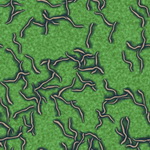
Scientists Crack Genomes of Microscopic Worms Vital for Agri
September 30, 2015| |
 Scientists from the University of California Riverside and partners have sequenced the genomes of five microscopic roundworms that are likely to be involved in parasitism and widely-used in agriculture for biological control. The results are published in Genome Biology.
Scientists from the University of California Riverside and partners have sequenced the genomes of five microscopic roundworms that are likely to be involved in parasitism and widely-used in agriculture for biological control. The results are published in Genome Biology.
These nematodes Steinernema carpocapsae, S. feltiae, S. glaseri, S. monticolum and S. scapterisci are considered insect pathogenic because they can easily kill an insect host. The researchers will use the genetic information to improve the efficacy of the nematodes to prevent insect damage to crops. Furthermore, they also found significant information about gene regulation and evolution of the nematodes as compared with other important nematodes in agriculture.
"In particular we found instructions in the genome for turning on and off genes that are involved in the development of neurons and muscle tissue," said Adler Dillman, assistant professor at UC Riverside. "We have also found a number of gene families that seem to be involved in the parasitism of insects by worms and we are excited to continue studying these in future experiments," he added.
Read the media release from UC Riverside.
| |
Biotech Updates is a weekly newsletter of ISAAA, a not-for-profit organization. It is distributed for free to over 22,000 subscribers worldwide to inform them about the key developments in biosciences, especially in biotechnology. Your support will help us in our mission to feed the world with knowledge. You can help by donating as little as $10.
-
See more articles:
-
News from Around the World
- U.S. and China Commit to Further Improve Biotech Approval Process
- Syrian War Prompts First Withdrawal of Seeds from Svalbard Global Seed Vault
- 3,000 Rice Genomes Data Available on the AWS Cloud
- Zambia Hosts Africa Green Revolution Forum 2015
- Argentine Government Seeks Citizen Opinion on New GE Crops
- Scientists Reveal Why Black Rice is Black
- USDA APHIS Opens Public Comment Period for GE Wheat Field Trials
- South Australia Farmers Call for Permission to Grow GE Crops
- Stakeholders from Africa Visit Bt Cotton Fields in India
- Scientists Develop Rice with High Folate Stability
-
Research Highlights
- A Vernalization Pathway Gene from Soybean Promotes Flowering in Arabidopsis
- Expression of Genes Associated with Drought Traits Improves Drought Adaptation in Peanut
- GE Tomato Expressing Bacterial Gene XnGroEL Shows Enhanced Resistance to Armyworm and Abiotic Stresses
-
Beyond Crop Biotech
- Scientists Crack Genomes of Microscopic Worms Vital for Agri
-
Resources
- New Publication: 50 Biotech Bites
-
Read the latest: - Biotech Updates (February 18, 2026)
- Gene Editing Supplement (January 28, 2026)
- Gene Drive Supplement (February 22, 2023)
-
Subscribe to BU: - Share
- Tweet
